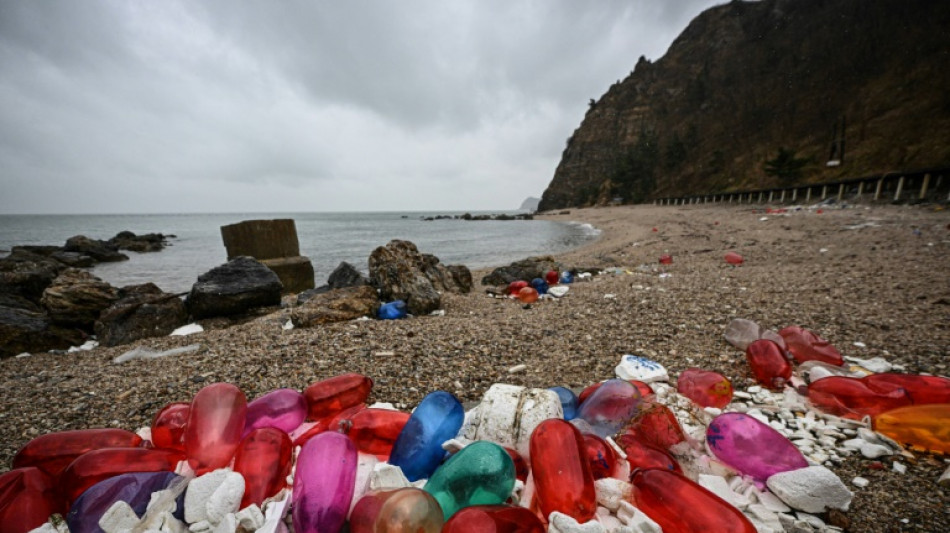
-
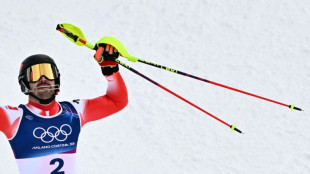 Meillard crowns Swiss men's Olympic domination with slalom gold
Meillard crowns Swiss men's Olympic domination with slalom gold
-
German carnival revellers take swipes at Putin, Trump, Epstein

-
 England survive Italy scare to reach T20 World Cup Super Eights
England survive Italy scare to reach T20 World Cup Super Eights
-
Gold rush grips South African township
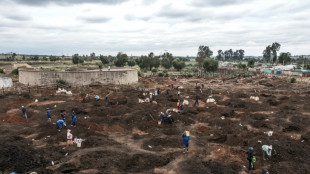
-
 'Tehran' TV series producer Dana Eden found dead in Athens
'Tehran' TV series producer Dana Eden found dead in Athens
-
Iran FM in Geneva for US talks, as Guards begin drills in Hormuz Strait

-
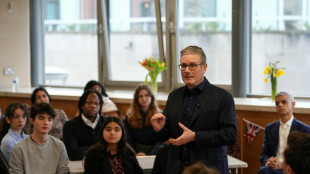 AI chatbots to face UK safety rules after outcry over Grok
AI chatbots to face UK safety rules after outcry over Grok
-
Sakamoto fights fatigue, Japanese rivals and US skaters for Olympic women's gold

-
 'Your success is our success,' Rubio tells Orban ahead of Hungary polls
'Your success is our success,' Rubio tells Orban ahead of Hungary polls
-
Spain unveils public investment fund to tackle housing crisis

-
 African diaspora's plural identities on screen in Berlin
African diaspora's plural identities on screen in Berlin
-
Del Toro wins shortened UAE Tour first stage
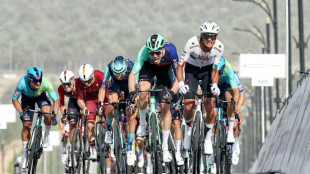
-
 German carnival revellers take sidesweep at Putin, Trump, Epstein
German carnival revellers take sidesweep at Putin, Trump, Epstein
-
Killing of far-right activist stokes tensions in France
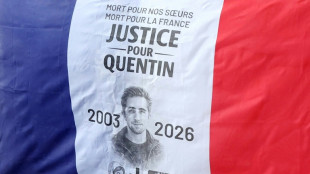
-
 Record Jacks fifty carries England to 202-7 in must-win Italy match
Record Jacks fifty carries England to 202-7 in must-win Italy match
-
European stocks, dollar up in subdued start to week
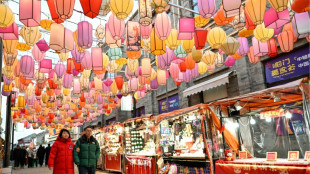
-
 African players in Europe: Salah hailed after Liverpool FA Cup win
African players in Europe: Salah hailed after Liverpool FA Cup win
-
Taiwan's cycling 'missionary', Giant founder King Liu, dies at 91
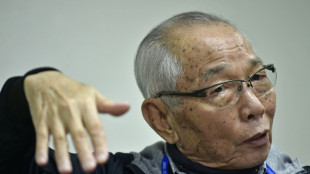
-
 Kyrgyzstan president fires ministers, consolidates power ahead of election
Kyrgyzstan president fires ministers, consolidates power ahead of election
-
McGrath tops Olympic slalom times but Braathen out

-
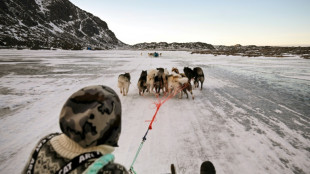 Greenland's west coast posts warmest January on record
Greenland's west coast posts warmest January on record
-
South Africa into Super Eights without playing as Afghanistan beat UAE

-
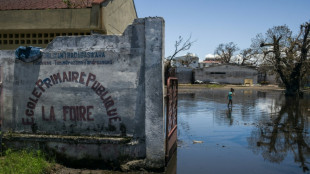 Madagascar cyclone death toll rises to 59
Madagascar cyclone death toll rises to 59
-
ByteDance vows to boost safeguards after AI model infringement claims

-
 Smith added to Australia T20 squad, in line for Sri Lanka crunch
Smith added to Australia T20 squad, in line for Sri Lanka crunch
-
Australian museum recovers Egyptian artefacts after break-in

-
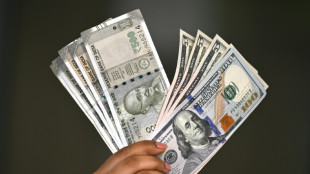 India forced to defend US trade deal as doubts mount
India forced to defend US trade deal as doubts mount
-
Bitter pill: Taliban govt shakes up Afghan medicine market

-
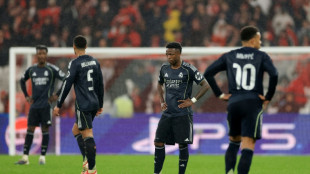 Crunch time for Real Madrid's Mbappe-Vinicius partnership
Crunch time for Real Madrid's Mbappe-Vinicius partnership
-
Rio Carnival parades kick off with divisive ode to Lula in election year

-
 Nepal 'addicted' to the trade in its own people
Nepal 'addicted' to the trade in its own people
-
Asian markets sluggish as Lunar New Year holiday looms
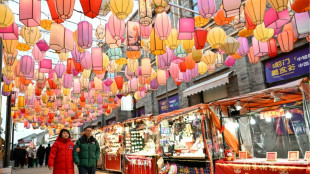
-
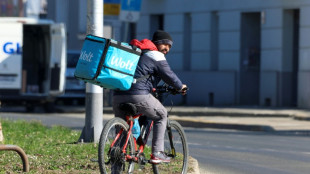 'Pure extortion': foreign workers face violence and exploitation in Croatia
'Pure extortion': foreign workers face violence and exploitation in Croatia
-
Nepal launches campaigns for first post-uprising polls
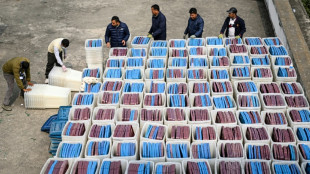
-
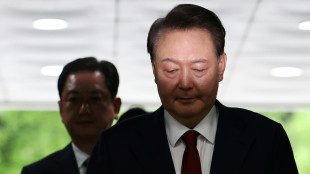 What to know as South Korea ex-president Yoon faces insurrection verdict
What to know as South Korea ex-president Yoon faces insurrection verdict
-
'Train Dreams,' 'The Secret Agent' nab Spirit wins to boost Oscars campaigns

-
 Rubio visits Trump's 'friend' Orban ahead of Hungary polls
Rubio visits Trump's 'friend' Orban ahead of Hungary polls
-
Kim unveils housing block for North Korean troops killed aiding Russia: KCNA

-
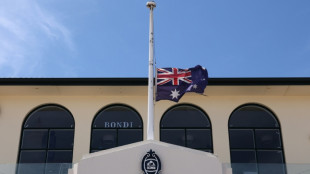 Accused Bondi killer Naveed Akram appears in court by video link
Accused Bondi killer Naveed Akram appears in court by video link
-
Art and the deal: market slump pushes galleries to the Gulf
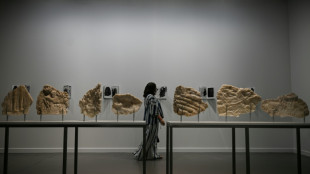
-
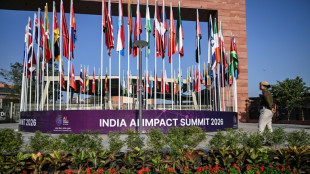 Job threats, rogue bots: five hot issues in AI
Job threats, rogue bots: five hot issues in AI
-
India hosts AI summit as safety concerns grow
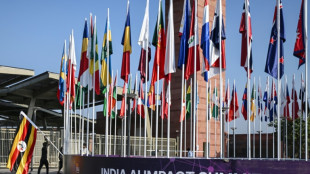
-
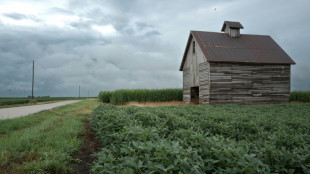 'Make America Healthy' movement takes on Big Ag, in break with Republicans
'Make America Healthy' movement takes on Big Ag, in break with Republicans
-
Tech is thriving in New York. So are the rents

-
 Young USA Stars beat Stripes in NBA All-Star tourney final
Young USA Stars beat Stripes in NBA All-Star tourney final
-
New anti-government chants in Tehran after giant rallies abroad: reports

-
 'The Secret Agent' nabs Spirit Awards win in boost to Oscars campaign
'The Secret Agent' nabs Spirit Awards win in boost to Oscars campaign
-
APOZ Project of TKCM is Nominated for the Pinnacle Award
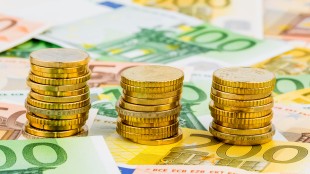
-
 CAVU Resources, Inc. Updates Corporate Website to Reflect Long-Term Direction and Ownership Mindset
CAVU Resources, Inc. Updates Corporate Website to Reflect Long-Term Direction and Ownership Mindset
-
GREATER THAN Redefines Hydration for Women With New 12oz Cans, Retail Expansion and GoddessLand(TM)


Chinese island plastic pollution turned into artistic omens
As storm clouds gathered on a forgotten beach in China's Miaodao islands, artist Fu Junsheng picked his way through piles of plastic waste washed up along the shoreline, looking for inspiration.
China is the world's largest plastic producer, and the islands -- a niche tourist destination -- sit in the cross-stream of several highly developed eastern peninsulas.
Every squall brings fresh waves of floating debris onto the archipelago's white sand beaches -- and eight years ago Fu decided to make that waste both his artistic message and medium.
"Our generation has witnessed rapid societal development. In the process, we've sometimes neglected nature, and at times, even ignored it altogether," the 36-year-old said as he showed AFP around his studio, full of pieces created from plastic washed ashore.
One of the most striking installations features nearly 900 flip-flops, displayed in front of his seascape oil paintings.
"(Marine debris) carries our daily life, the life of each of us," he said.
The oldest item Fu has collected is an instant noodle packet from 1993.
Despite over 30 years of exposure to the elements, it remains intact, showing hardly any signs of decomposition.
"(Objects like this) don't disappear but instead break down into tiny particles, which can end up being ingested by marine life and, eventually, by us," said Fu.
"This process is invisible to the naked eye."
- 'Global problem' -
The Miaodao islands sit opposite the Korean peninsula, where this week negotiators from around the world are attempting to hammer out an international treaty to curb plastic pollution.
Fu has found lighters and coffee bottles from South Korea on his beachcombing trips.
"Marine ecological protection requires people from different countries and regions to work together," he said.
"It's not a localised issue -- it's a broader, global problem."
At university in nearby Qingdao, Fu became interested in the environmental consequences of China's rapid urbanisation from the late 1980s onwards.
These days China's factories make the most plastic worldwide -- 75 million tonnes in 2023, according to official statistics.
While it is not considered the world's largest plastic polluter, its 1.4 billion citizens still created 63 million tonnes of waste plastic in 2022, according to state media citing a national body.
Most of that was recycled, put into landfills or incinerated -- about 30 percent each -- while seven percent was directly abandoned.
Fu argued that while completely eliminating plastic use is unrealistic, it is essential to use it in a "more controllable and precise way".
Worldwide, over 90 percent of plastic is not recycled, with over 20 million tonnes leaking into the environment, often after just a few minutes of use.
"People often approach these problems from an individual perspective. But environmental issues are collective challenges for humanity," he said.
- Everyday household items -
Over the years, Fu has collected countless objects -- mostly everyday household items such as children's toys, balloons, toothbrushes and bottles.
His aim, he said, is to make the public recognise how intimately marine pollution is tied to their daily lives.
In one piece posted online, he constructed a rainbow from different coloured plastic bits; in another, a deflated sex doll is surrounded by tens of multicoloured rubber gloves.
One display includes a shelf of worn cosmetics and toiletries containers.
"These products are meant to make us feel cleaner and more beautiful," Fu said.
"But they often end up in the ocean, polluting the water, damaging marine ecosystems and ultimately making our world less beautiful."
P.Silva--AMWN